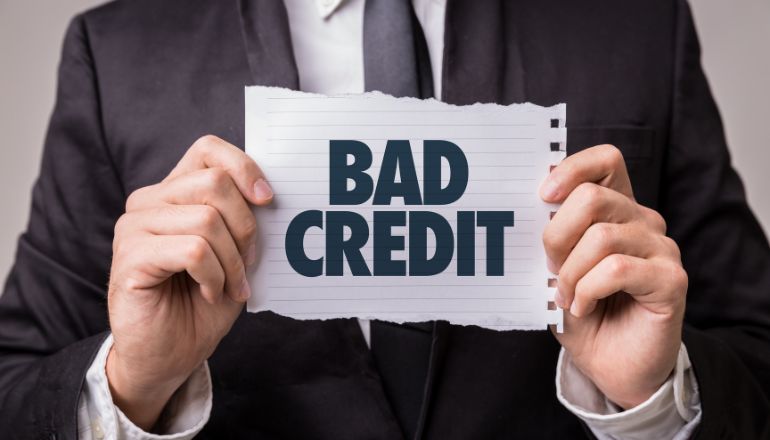How to Buy a Condo with Bad Credit

Buying a condo is a significant milestone, but having bad credit can make the process seem daunting. While bad credit poses challenges, it doesn’t mean homeownership is out of reach. With strategic planning, persistence, and the right approach, you can secure a condo even with a less-than-perfect credit score. This guide will walk you through actionable steps to make your dream of condo ownership a reality.
What Are the Key Steps in How to Buy a Condo with Bad Credit?
Buying a condo with bad credit can seem daunting, but how to buy a condo with bad credit is possible with the right strategy and persistence. Start by understanding your credit situation through a review of your credit report and score. From there, work on improving your credit by paying down debt, making timely payments, and avoiding new credit. Explore financing options like FHA loans or rent-to-own agreements, and consider saving for a larger down payment to reduce lender risk. It’s also essential to work with professionals such as real estate agents and mortgage brokers who specialize in buyers with bad credit. Shopping around for flexible lenders and being aware of additional costs, like PMI and higher interest rates, will further prepare you for success. By staying patient, persistent, and cautious of scams, you can make condo ownership a reality despite bad credit.
Read More: The Ultimate Guide to Buying Pre-Construction Condos
1. Understand Your Credit Situation
Before diving into the condo-buying process, it’s essential to understand your credit situation. Follow these steps:
Check Your Credit Report: Obtain a free copy of your credit report from major credit bureaus like Equifax or TransUnion. Review it for errors or inaccuracies.
Know Your Credit Score: Most lenders consider a score below 580 as poor, but requirements vary.
Identify Problem Areas: Highlight late payments, high credit utilization, or collection accounts that might impact your score.
2. Improve Your Credit Before Applying
Even small improvements to your credit score can make a difference. Here’s how:
Pay Down Debt: Focus on reducing credit card balances and outstanding loans.
Dispute Errors: Report any inaccuracies in your credit report and have them corrected.
Make On-Time Payments: Consistently pay bills on time to build a positive payment history.
Avoid New Credit: Refrain from opening new accounts, which can temporarily lower your score.
3. Explore Financing Options
Several financing options are tailored for buyers with bad credit. Consider these alternatives:
FHA Loans
Federal Housing Administration (FHA) loans are government-backed and cater to borrowers with lower credit scores. They require:
A minimum credit score of 500 (with a 10% down payment) or 580 (with a 3.5% down payment).
Steady employment history.
A debt-to-income (DTI) ratio below 43%.
Subprime Mortgages
Subprime loans are designed for borrowers with bad credit but come with higher interest rates and fees. Be cautious and ensure you understand the terms.
Co-Signers
If you have a trusted family member or friend with good credit, they can co-sign your mortgage. This provides lenders with added security but makes the co-signer equally responsible for the loan.
Rent-to-Own Agreements
Rent-to-own contracts allow you to rent a condo with the option to buy it later. Part of your rent goes toward the purchase price, giving you time to improve your credit.
4. Save for a Larger Down Payment
A substantial down payment reduces the lender’s risk and increases your chances of approval. Aim to save at least 10-20% of the condo’s price. A larger down payment can also help:
Offset higher interest rates.
Demonstrate financial responsibility.
Reduce the overall loan amount.

5. Work with the Right Professionals
Navigating the real estate market with bad credit requires expert guidance. Assemble a team that includes:
Real Estate Agents: Choose agents experienced in working with buyers who have bad credit.
Mortgage Brokers: They can help you find lenders and programs suited to your financial situation.
Credit Counselors: Seek advice on improving your credit and managing debt.
6. Shop Around for Lenders
Not all lenders have the same requirements. Research and compare multiple lenders to find one that’s flexible with bad credit. Look for:
Lenders specializing in FHA or subprime loans.
Credit unions or smaller banks that may offer personalized solutions.
Online platforms that match borrowers with lenders.
7. Prepare for Higher Costs
Bad credit often means higher interest rates and fees. Budget for additional expenses, including:
Private Mortgage Insurance (PMI): Typically required for down payments below 20%.
Closing Costs: Include lender fees, appraisal costs, and taxes.
Higher Monthly Payments: Factor in the impact of higher interest rates.
8. Consider Alternative Ownership Models
If traditional buying isn’t feasible, explore alternative ownership options like:
Shared Equity Programs: Partner with investors or government programs that co-own the property with you.
Cooperative Housing: Purchase shares in a housing cooperative instead of owning a unit outright.
9. Be Patient and Persistent
The path to condo ownership with bad credit may take time. Stay focused on your goals by:
Continuing to improve your credit score.
Monitoring the real estate market for affordable opportunities.
Being flexible with location and condo features.
10. Beware of Scams
Unfortunately, bad credit borrowers are often targeted by predatory lenders. Protect yourself by:
Avoiding lenders who guarantee approval without checking your credit.
Reading all contracts thoroughly.
Consulting professionals before committing to terms.
Final Thoughts
Buying a condo with bad credit is challenging but achievable. By understanding your financial situation, exploring alternative options, and working with experienced professionals, you can navigate the process successfully. Focus on improving your credit and demonstrating financial responsibility, and you’ll be one step closer to securing your dream condo.
With persistence and the right strategy, homeownership is within your reach, regardless of your credit score.














Does a co-signer help with getting better loan terms, or just approval?
FHA loans seem like a solid option, good to know about the low credit score requirement!
Saving for a bigger down payment sounds tough, but it makes sense for better rates.